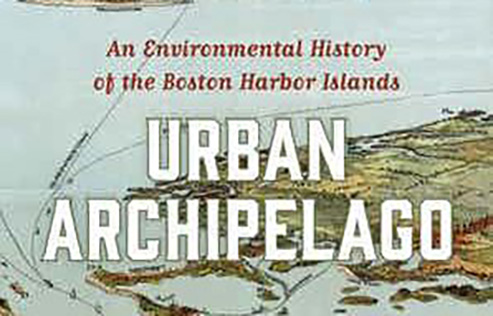Urban Archipelago: An Environmental History of the Boston Harbor Islands

MHS Event
Pavla Šimková, Ludwig-Maximilians-Universität
The Boston Harbor Islands have been called Boston's "hidden shores." Previously home to prisons, asylums, and sewage treatment plants, this surprisingly diverse ensemble of islands has existed on the urban fringe over the last four centuries. Pavla Šimková reinterprets the Boston Harbor Islands as an urban archipelago, arguing that they have been an integral part of Boston since colonial days. Drawing on archival sources, historic maps and photographs, and diaries from island residents, she attests that the harbor islands' story is central to understanding the ways in which Boston has both shaped and been shaped by its environment over time.
Register to attend in person Register to attend virtually
Hybrid Event
MHS maintains a high standard of Covid protection. We require all people entering our building to wear a mask while in a public space and anyone who will be in the building for a significant period of time (i.e. more than making a delivery) must provide proof of vaccination.
